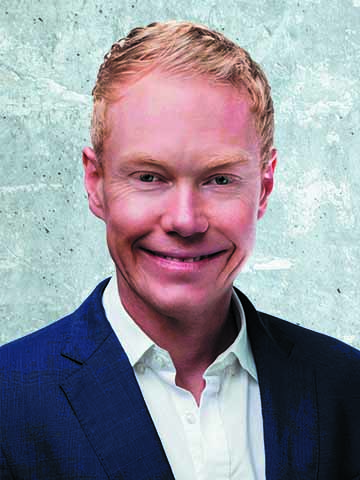The Chapman Consulting Group Participates in a Forum for HR Talent in Nepal
More than 200 of Nepal’s Top HR leaders listened to a 90 minute presentation today delivered by Matthew Chapman, Managing Director of The Chapman Consulting Group, at the first ever Nepal National HR 2011 Conference. The event, organised by the National Banking Training Institute, was held in Kathmandu, and Chapman was one of five international HR speakers flown in to present.

The audience represented a cross-section of Nepal’s highest potential HR talent, from a wide array of multinationals, local organisations and international aid agencies. In his 90 minute presentation, Chapman talked on the latest trends in Talent Acquisition across the various markets of Asia Pacific and the impact that such trends may have on the Nepalese business landscape in the near future. The presentation looked at the transformation of the talent acquisition space from the past to the present, and how Nepal can get ‘ahead of the curve’ by implementing modern techniques in a developing market. Participants were particularly interested in what was happening in other markets around the Asia Pacific region.
Some of the key points discussed were:
- A strong employee brand is vital to attract good people
- The importance of ensuring that there are no weak links in the interview chain
- Leveraging networks of current and past employees to find the best talent
- If posting jobs on your own website, gear your team to handle the response
- Smart companies are hiring talent not just by paying them a higher salary
- Speed and transparency in the hiring process is vital
- Don’t sit in the middle of having an administrative or strategic function — choose one or the other
- Invest in a comprehensive database if you can afford it
- Think outside the box and tap into the hidden market when acquiring talent
- Look to developed markets and continually adopt the latest recruitment strategies

“It was fascinating to get a closer understanding of the Nepalese HR market”, said Chapman after the event. “It’s clear that the market is still at an early stage of sophistication by international standards in HR, however I was impressed with the intelligence and open-mindedness of practitioners to learn what’s happening in HR outside of Nepal”, added Chapman. Some key observations were as follows:
1) Most of the HR talent is employed in local Nepalese companies — there is only a small number of multinationals (Unilever, Standard Chartered etc). There are, however, a surprising number of international aid agencies, and these agencies are aggressive in getting some of the best HR talent.
2) HR practitioners demonstrated a high grasp of technology — most are already using online social media such as Facebook, Twitter and LinkedIn for talent acquisition exercises.
3) Internationally minded business leaders (many of who have been educated outside Nepal) from local companies, as well as foreign talent in international aid agencies, are demanding more and more from HR. We will see a big stretch in the value of the HR function in years to come.
4) The HR business partnering and specialisation model (breaking compensation, talent, learning etc into different silos) remains in infancy in many companies, with most still following a ‘generic’ generalist model. However there is a high awareness of the benefits of specialisation.
5) Companies are not yet that accepting of “consultants” to outsource talent acquisition or OD projects, in comparison to neighbor markets like India and Bangladesh. But this is changing.
6) One practitioner argued that Nepal’s international image of being a “land-locked country” makes people think the country is cut off from international thinking. Quite to the contrary, well educated local talent is very clued in to the outside world.

This trip really challenged me to think about how we shouldn’t underestimate developing markets, such as Nepal. With rising computer literacy levels and high education levels, including many students now studying overseas, this market will represent an excellent international sourcing ground, even within the HR profession. Perhaps the greatest issue will be how fast the Nepalese economy and mindset develops to retain these high potential individuals versus losing them to more mature markets elsewhere.
Key Contributors:


 Andrea Merrigan
Andrea Merrigan Orelia Chan
Orelia Chan Stanislav Medvedev
Stanislav Medvedev Fleur Daniell
Fleur Daniell Finian Toh
Finian Toh Tim Rayner
Tim Rayner Nicola Hasling
Nicola Hasling Stefanie Cross-Wilson
Stefanie Cross-Wilson


